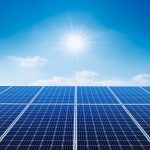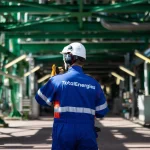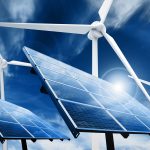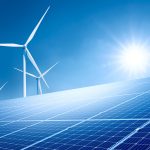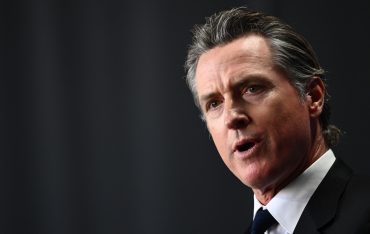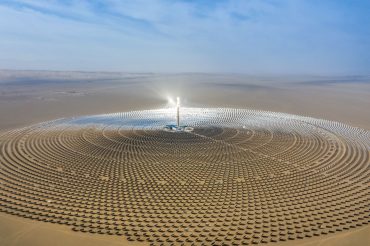
- Green Tech
Saudi Arabia Launches $8.3B Clean Energy Mega Push
6 minute read

Saudi Arabia’s renewable energy investment pushes nation closer to achieving 70% of its clean power goals by 2030
Key Takeaways
- $8.3 billion investment commitment by ACWA Power, Badeel, and SAPCO to develop 15,000 MW of renewable energy capacity across seven projects in Saudi Arabia
- Largest single-phase renewable capacity globally with five solar photovoltaic plants and two wind power plants scheduled for completion between late 2027 and early 2028
- 70% of national renewable energy targets by 2030 will be achieved through Public Investment Fund backing as part of Saudi Arabia’s Vision 2030 diversification strategy
Introduction
Saudi Arabia secures the world’s largest single-phase renewable energy commitment as three major players announce an $8.3 billion investment to develop 15,000 MW of clean power capacity. ACWA Power, Badeel, and Saudi Aramco Power Company (SAPCO) signed power purchase agreements with the Saudi Power Procurement Company in Riyadh this month, marking a watershed moment for the Kingdom’s energy transition.
The announcement came in the presence of Energy Minister Prince AbdulAziz bin Salman bin AbdulAziz Al Saud, underscoring the strategic importance of these projects to Saudi Arabia’s National Renewable Energy Program. The initiative represents a critical component of Vision 2030, the Kingdom’s ambitious plan to diversify its economy and reduce dependence on hydrocarbons.
Key Developments
The consortium will develop seven renewable energy facilities across multiple provinces, with construction expected to begin following financial closure in the third quarter of 2025. Five solar photovoltaic plants will be established in Bisha (3,000 MW), Humaij (3,000 MW), Khulis (2,000 MW), Afif1 (2,000 MW), and Afif2 (2,000 MW).
Two wind power plants will complement the solar capacity, with facilities planned for Starah (2,000 MW) and Shaqra (1,000 MW), both located in Riyadh province. The projects will become operational between the second half of 2027 and first half of 2028.
The Saudi Power Procurement Company serves as the designated off-taker for all projects, providing long-term power purchase agreements that ensure revenue stability for investors. The Public Investment Fund’s involvement demonstrates the government’s commitment to achieving 70% of national renewable energy targets by 2030.
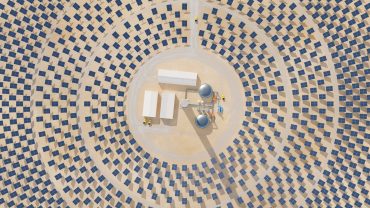
Market Impact
Saudi Arabia’s renewable energy market shows exceptional growth momentum, with forecasts indicating a compound annual growth rate of 35.07% from 2025 to 2033. The solar segment alone expects to surge from $2.5 billion in 2024 to $7.72 billion by 2030, representing a 20.5% CAGR.
The Kingdom’s renewables capacity is expected to nearly double to 12.7 GW by the end of 2025, while battery storage capacity will quadruple to 8 GWh. Grid capacity targets reach 20 gigawatts by the end of 2026, according to the Saudi Press Agency.
Declining solar panel prices and technological improvements in photovoltaic and concentrated solar power systems enable Saudi Arabia to deliver electricity at globally competitive costs. The favorable regulatory environment and government incentives continue to attract both international and domestic investors.
Strategic Insights
The investment positions Saudi Arabia as a global leader in renewable energy deployment while leveraging the Kingdom’s natural advantages of abundant sunlight and available land. ACWA Power’s renewable capacity in the country will reach 34 GW as part of a wider portfolio spanning 51.9 GW globally.
Energy storage integration becomes increasingly critical as the Bisha Project incorporates advanced battery energy storage systems to manage solar and wind power intermittency. The convergence of technology and energy sectors accelerates through big data analytics and machine learning applications for photovoltaic energy forecasting.
The projects support domestic supply chain development and economic diversification objectives, with the consortium’s total commitment exceeding $17 billion across 28.6 GW of capacity. Green hydrogen initiatives, including the NEOM Green Hydrogen Project, position Saudi Arabia as a future exporter of clean fuels and decarbonization technologies.
Expert Opinions and Data
Marco Arcelli, CEO of ACWA Power, describes the agreement as “a significant milestone in Saudi Arabia’s strategic vision for a more resilient and sustainable energy landscape.” The executive emphasizes the transformative impact on the Kingdom’s energy infrastructure development.
Sultan AlNabulsi of Badeel highlights the broader economic implications, stating that “this investment will enhance the resilience of the energy sector nationally, positively impacting all other vital sectors of the national economy, and increasing the country’s investment attractiveness.” The assessment underscores the interconnected nature of energy security and economic growth.
Waleed Al Saif of SAPCO emphasizes the partnership’s role in helping to “build Saudi Arabia’s renewable energy infrastructure.” According to the Public Investment Fund (PIF), the agreement reinforces the Public Investment Fund’s commitment to achieving national renewable energy targets.
Industry analysts view the scale and backing of these projects as evidence of strong investor confidence in Saudi Arabia’s renewable energy strategy and market fundamentals. The commitment to research and development partnerships ensures the Kingdom remains at the forefront of clean energy deployment and innovation.
Conclusion
The $8.3 billion renewable energy commitment represents Saudi Arabia’s most ambitious clean power initiative to date, establishing the Kingdom as a global leader in renewable energy development. The partnership between ACWA Power, Badeel, and SAPCO creates a foundation for sustained economic diversification and technological advancement.
This investment accelerates Saudi Arabia’s transformation into a renewable energy powerhouse while supporting Vision 2030 objectives for reduced hydrocarbon dependence. The projects deliver immediate economic benefits through job creation and supply chain development, while positioning the Kingdom for long-term leadership in the global clean energy transition.
